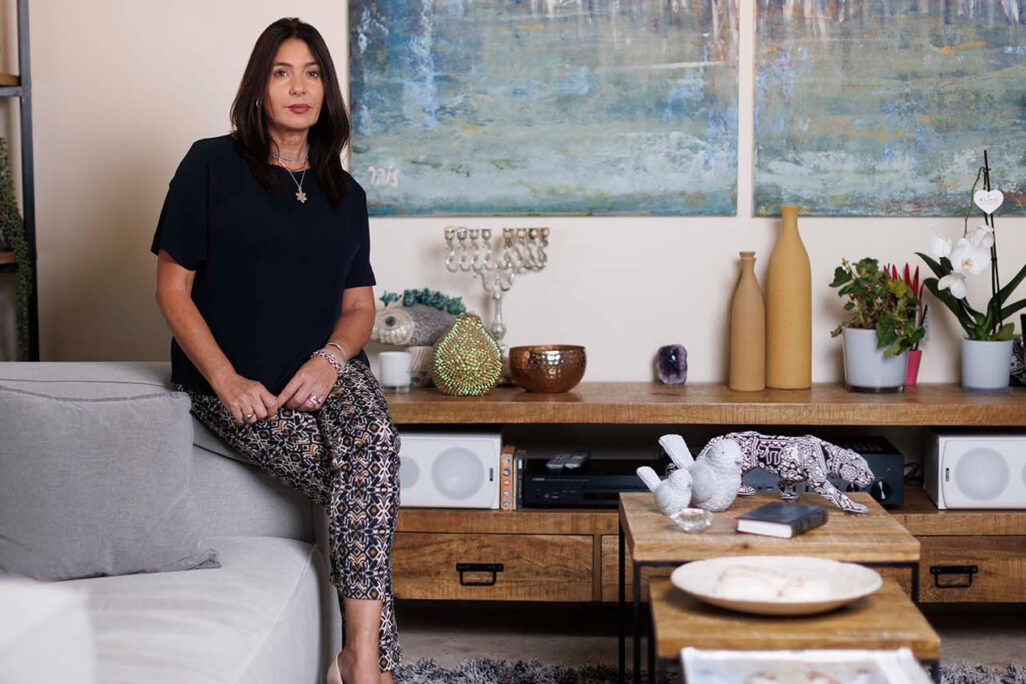
Knesset Member Regev hosts the interview in her private home with a sense of great warmth. The house is bustling with life: her children, her staff members. The apartment itself is colorful, the atmosphere feels welcoming and joyful. Regev, in a face-to-face meeting, is far, almost the opposite, from her image and outspoken presence in the media.
Miri Regev served as Minister of Transportation in 2020, and before that served as Minister of Culture and Sport under Netanyahu’s administration since 2015.
Is there a difference between the Miri we see in her personal life and the Miri we see in the media?
"Obviously, when I'm in a very short interview, and I have to convey messages and answer the interviewer who comes with a very clear agenda, then I have to shock people. You have to give clear and sharp answers, and leave a mark."
Everyone, from every side of the political map, comes to leave a mark with strong slogans, and the society that lives here is torn apart.
"[Meretz leader] Zehava Galon and [former Labor leader] Shelly Yachimovich are no less extreme, [Knesset Speaker and Yesh Atid MK] Mickey Levy is no less extreme, [Prime Minister and Yesh Atid leader] Yair Lapid is no less extreme, and [Finance Minister and Yisrael Beiteinu leader Avigdor] Lieberman with his ‘send the Haredim in a wheelbarrow to the garbage dump’ is no less extreme.
"There is forgiveness for the left. And there is no such forgiveness for the right. Once you understand that this is part of the engineering of consciousness, you don’t panic. You say what you want to say. And thank G-d that today there are social networks, Instagram and Facebook and TikTok and Twitter, to convey your messages, because you understand that the media will edit everything you say in order to engineer a certain consciousness."
Why is this your relationship with the media?
"They attack me because I am strong, because I am a symbol, because people identify with me and love me because they understand that I mean what I say. You understand that if I say I will close the [Arab-speaking, Haifa-based] Al-Midan theater, I will close it; And when I say I will transfer budgets to the periphery, I transfer budgets; And when I say I will build sports enters and soccer fields in the periphery, I do it; When I say that I will build an eastern railway that will connect Kiryat Shmona and Eilat, because a metro is important, but the State of Israel is not only Tel Aviv, I will do it."
Why don't they appreciate this?
"They go crazy because I want to take away their cheese. They got used to eating cream cheese with 40% milk fat, and suddenly they are told: 'No, you have to share with others.' Those who are unable to accept everything that I represent, that there is also Mizrachi culture here in addition to Western culture, and that there’s the periphery in addition to the center, despise me, try to hurt me."
Have you been hurt by the scorn and ridicule?
"No."
Really?
"Never in my life."
It is impossible not to be offended.
"Maybe at the beginning I felt uncomfortable with it, but the more I progressed and the more I worked and saw the built-in inequality in the government offices, and the unequal distribution of budgets to the periphery, I realized that I was right, and that I was touching their weak underbellies. When you touch their weak underbellies, they shout and get angry and try to scare me."
So you grew a thick skin. What about your family?
"I won't say that the family doesn't get in the way from time to time, but they always back me up and support me."
And what do you say to them?
"Needless to say, they know who their mother is. In the end, their friends and girlfriends come to our house and see the open house, the warmth and the love. People meet me and say to me: 'Wow, you are so different to how you are in reality to how you are on TV.' The mainstream media aims to engineer consciousness, make propaganda, fake it.
"Major media personalities are trying to hurt me on a personal level. They don't want me strong, they don't want me high on the Likud list. But the Likudniks understand that if they want someone with courage, who preserves their honor, that person is me.
"I was on Ofira and Berkovich's television show, and he says that Likud members are members of a criminal organization. Who can call us a criminal organization? What is this desire to insult us? To call us tzachtzachim [riffraff – a derogatory term for Mizrachim], mezuzah kissers, and grave worshippers? It only strengthens me within the Likud party, because they understand how they want to hurt us, through how they try to hurt me."
Are there boundaries in dialogue that you won't cross?
"I am in favor of sharp criticism and telling the truth and am against incitement and violence. If I didn't fight for my truth, I would walk around the primaries with a glass of white or red wine, and that would be the end of it. But no. In the end, you have to say things and fight.
"You have to understand that in Israeli society, there are still very large gaps between the periphery and the center; There are people who don't have the opportunity and the tools to fight in an equal way, and they see me as their mouthpiece, and their representative."
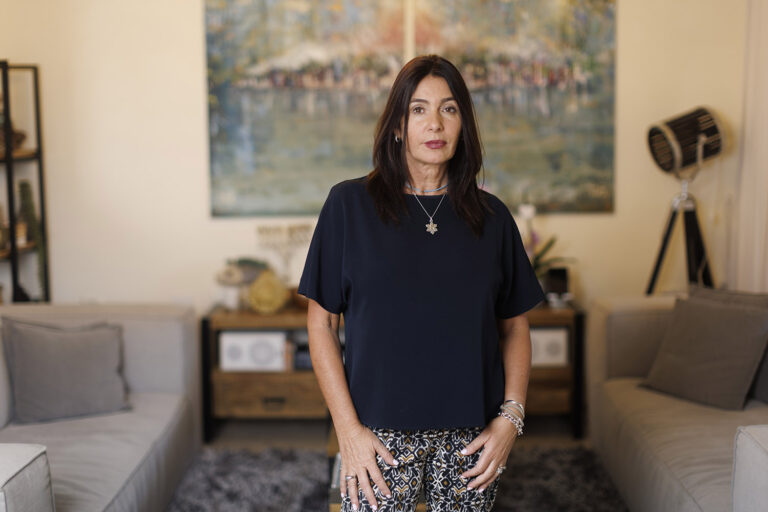
"A person who sees everything in shekel signs cannot be a Minister of Finance"
Regev, one of the prominent symbols of Likud in the last decade, represents the social current in the party, the "Second Israel,” which refers to the Mizrachi and periphery populations. Alongside the Israeli flag, she flies the flags of the interests of the periphery, Mizrachim, and in recent years, the flag of the workers' unions as well.
According to her, she represents the socio-economic camp in Likud. At her current spot of ninth-ranked in the party after the August primaries, she hopes to push these priorities.
What do you think of Lieberman as Finance Minister?
"I think he's disconnected. He does not see the public. He doesn't think for a moment about the meaning of the increase in bread prices. In that he dares to touch the price of bread, to cut into the living flesh of the country, he does not see the children who grow up here, the parents, the kindergarten teachers, the school teachers, the workers.
"A person who sees everything in shekel signs cannot be a Minister of Finance. Because he has no compassion. He does not see those who can’t make it to the end of the month. It's expensive here. Very expensive in the State of Israel, and it is going to get even more expensive. Next week, electricity prices will rise again, and this will affect all prices in the market – it’ll affect the price of air-conditioning, it’ll affect the price of transportation. Housing prices jumped in the last year by 16.5%. This is not a reality that can be lived with."

Lieberman said that his model is Netanyahu in 2003.
"Lieberman would very much like Netanyahu to be his model. Netanyahu pulled the State of Israel out of three of the biggest crises that happened here. First, in 2003, with the Internet crisis; second, in 2008, with the mortgage crisis; And third, in 2020, with the coronavirus."
In 2003, Netanyahu hurt the weakest members of the population – single parents and Haredim.
"Netanyahu always made sure to strengthen Israel's economy, and in this way everyone benefited."
Is Netanyahu socially conscious today?
"I think that Netanyahu is definitely socially conscious. He understands the plight and understands the public’s difficulties. During his time in office, Netanyahu strengthened the middle class. The weaker classes improved their economic status.
"People in the last 12 years have traveled abroad more, spent more, had more money left in their pockets because there was growth in the economy, and it reached the people. Today, people go back to live with their parents, it's hard for them to make ends meet, people go and steal food. The gaps have grown. This is something that cannot continue."
"Arnon Bar-David is doing the right thing; Yaffa Ben David is an inspiration"
Do you support the Histadrut's fight against the rising cost of living?
"Arnon Bar-David is doing the right thing by starting a fight against the monopolies. Those people who want, in such a difficult time, to profit at the expense of a public that barely makes ends meet, are pigs. Arnon fights for the rights of workers in all sectors."
What will Likud do differently than Lieberman?
"We will lower prices, we will lower taxes, we will subsidize basic products, we will deal with the big monopolies."
How?
"As we have done in the past. In the time of coronavirus, we distributed grants and incentives. I am in favor of helping the weak, raising the minimum wage, raising wages in the public sector, reducing the phenomenon of contract workers, making it possible to live with dignity. We must also raise wages for school teachers, for kindergarten teachers, for teachers’ aides – those who take care of our children every day."
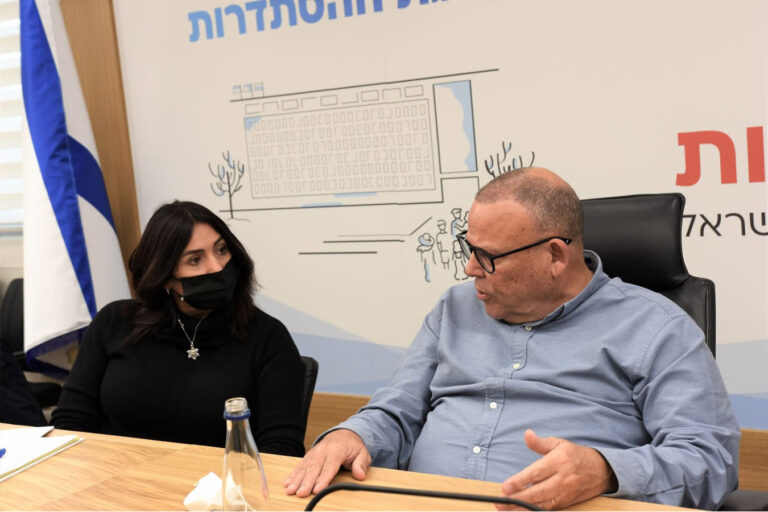
More than what the Finance Ministry offered to teachers?
"Yes. I support Yaffa Ben David and her struggle, I also know her personally. She does an excellent job, and doesn't get distracted from promoting her sector, and she should be praised for that."
Where will you get the money?
"There are 50 billion shekels in the treasury, revenues beyond expectations. We extracted the gas from of the [Mediterranean] sea [from the Leviathan gas field], when Shelly Yachimovich and Lapid opposed it. We brought money that could go to the weaker sectors [of Israeli society], to Holocaust survivors, to single mothers, to the weak. But the current government does not use it so that people can live with dignity."
Will there really be a difference between your policy and that of the current government or is it just semantics?
"There will be a difference. I am in favor of lowering the VAT. I fought hard so that there would be no VAT on fruits and vegetables. I'm in favor of lowering the electricity tariff."
What about subsidizing daycare centers?
"Yes, definitely."
But you didn't do it while you were in power.
"We did other things. The fact is that during the period that Likud was in power, the middle class grew, and we narrowed the gaps between socio-economic classes."
You could have done more.
"We could have done more, and more can always be done, but the ‘government of change’ (Bennett’s government) did nothing. It only did damage."
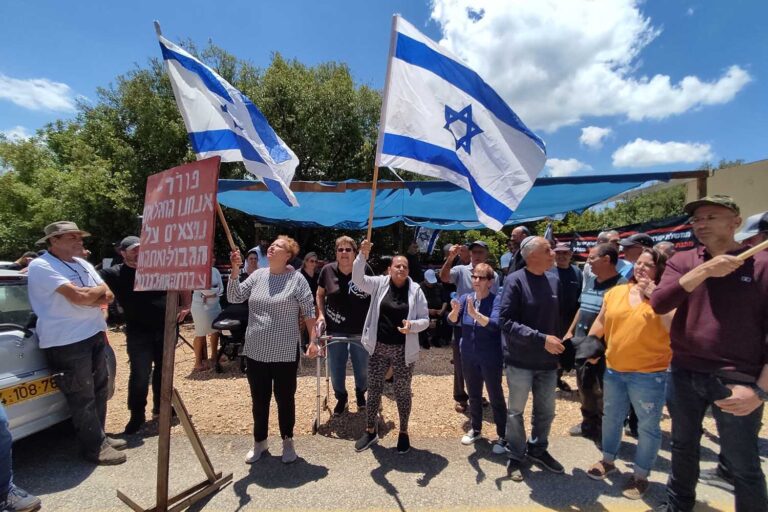
Are you in favor of lowering tariffs?
"Look, Lieberman said that eggs should be imported from Ukraine. Let's see how much you will pay now for an egg from Ukraine. We fought with the farmers both against [former Labor MK Shalom] Simhon’s reform and against the reform of [former Labor MK] Orit Noked, who was the Minister of Agriculture at the time. We didn't let these things pass, because the workers in the chicken coops in the north interest us, because I see all the farmers in the Arava, where my daughter used to work.”
Are you against the agricultural reforms?
"Unequivocally yes. I am in favor of and always have supported the farmers."
What about the opening of the markets for imports?
"The opening of the markets help improve competition, but if we hurt our farmers as a result, if we hurt those who grow our fruits and vegetables, then we have to keep that in mind. It is the government's job to make these decisions so that in the end the public is the one who will win."
"I see unions as the solution, not the problem"
Regev knows that not everyone in Likud shares her social views.
"There are those who may not agree with my statements of protecting workers' unions and controlling prices, like that of bread," she says, "but I'm not scared. I go with my truth."
You express support for workers' unions. Isn’t Netanyahu opposed to labor unions?
"I don't think so. Netanyahu believes in a free economy, but also in workers' rights. We all understand the importance of this.
“We all understand that most of the members of the unions are Likudniks, everyone understands that it is possible to live in a free economy alongside workers' rights. The workers themselves also believe in a free economy and a free market, because they also want to enjoy cheaper products.'"
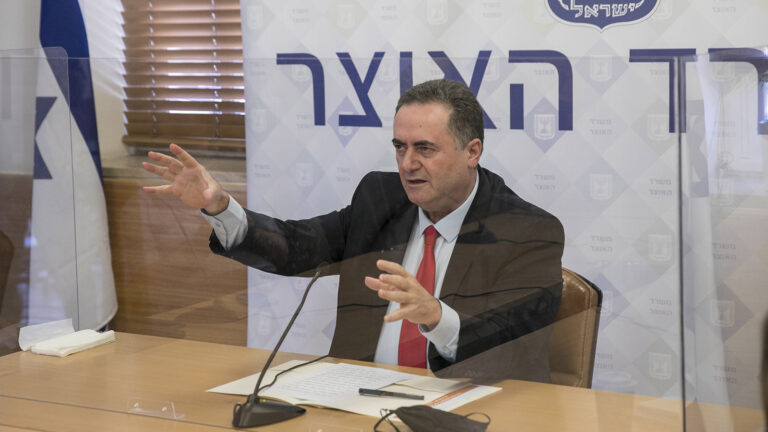
When Israel Katz was Finance Minister, he wanted to cut the wages of public sector workers. What do you think of him?
“I don't give grades. During his time as Minister of Finance, we were going through a very difficult year of coronavirus, Operation Guardian of the Walls, and in the end we still transferred grants, put people on paid leave, and gave incentives. This was the policy of the government led by the Prime Minister, and the Minister of Finance was part of it.
“Look at what is happening today, there is inflation all over the world, and the state coffers have 50 billion shekels. And what do they do? Instead of lowering taxes, instead of subsidizing products and services, the price of bread rises. Electricity prices go up, fuel prices go up, housing prices go up. This is a reality that cannot be lived with. It's a detached government that doesn't see the public, and isn’t interested in workers. What interests them is the noise of the espresso machines in the coffee shops in north Tel Aviv.”
There are those in Likud who do not like the unions.
"I see the unions as the solution, not the problem. In the United States, the largest free economy in the world, there are strong unions and they cultivate them, because they understand that if the workers are satisfied and the management is satisfied, the citizen benefits.
"I'm in favor of competition, but I'm also in favor of taking care of workers. They also want prices to go down, and egg prices to go down, and food prices to go down. They also understand that competition helps and assists them. But they can't think that workers will fly under the radar and won’t be taken care of, and they won't have rights. No. There is a win-win situation."
Who are your allies for these views in Likud?
"The socio-economic faction of Knesset members in Likud are my allies. Haim Katz served as chairman of the Labor and Welfare Committee for many years, and was an excellent Minister of Welfare. I hope he will be elected to a high position in the primaries so that we will continue to work within Likud to strengthen the socio-economic camp, and so that at the end of the day we will reduce the gaps and inequality in Israeli society."
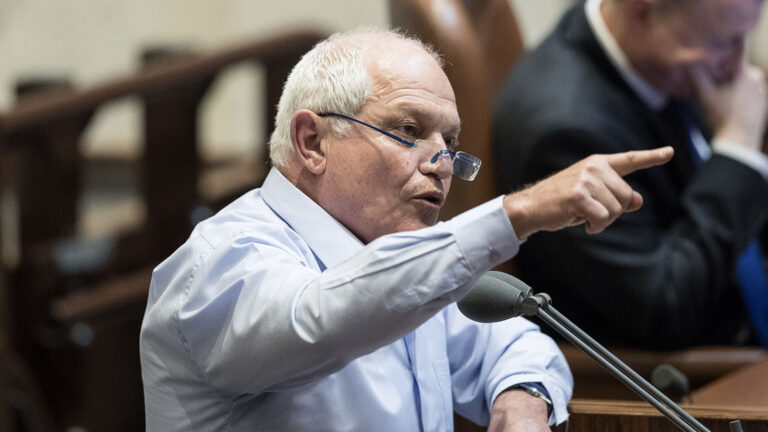
Perhaps the weaker sections should vote for Labor and Meretz, which talk about a welfare state that takes care of all citizens.
"People know very well that they only speak in slogans, and know that what interests them is only their base in Tel Aviv. It's like [Tel Aviv Mayor] Ron Huldai is only interested in north and central Tel Aviv. If south Tel Aviv was of interest to him, then he would have found a way to divide all the Sudanese [refugees] who came there also a little among the neighbourhoods in north and central Tel Aviv. Why not? Because it doesn't interest him. South Tel Aviv became even weaker, and he did nothing about it. These are the people who are good at talking, but in general what interests them is only the elite. Only the elite."
"Why strengthen Tel Aviv and not the south?"
Regev wants to return to being the Minister of Transportation. She considers the Ministry of Transportation to be one of the most important social ministries in Israel, and says that she has not finished the work she started there.
Is Merav Michaeli a good minister?
"She's awful.”
Why is she awful?
"She doesn't understand the socio-economic system and the influence of the Ministry of Transportation on the citizens of the country – at sea, in the air and on land. She does not understand that when you raise the prices of public transportation, you are actually cancelling the entire policy that we have been leading for years, that a person will give up his private car and travel by public transportation.
"She doesn't understand that we need to create more infrastructure and expand public transportation, to bring in more mass transportation – like the first wheeled train (a train that travels on a road) that I brought from China, or like a sea shuttle that exists in many countries in the world, and you can run it from Akko to Haifa, and from Haifa to Tel Aviv. She doesn't understand it."
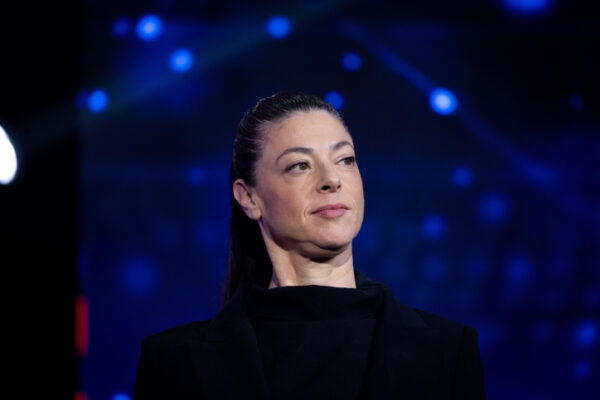
Is the metro (an internal train line in the Tel Aviv area) a good project?
"It’s only a good project only after the Israeli government connects the State of Israel from Kiryat Shmona to Eilat. As long as you don't do that, you don't need a metro. Today you have 'Dankal' – light rails that connect the entirety of Gush Dan; You have the 'Ofnidan' – which allows you to travel on a bicycle path from Holon to Bat Yam, and to Tel Aviv."
Are you against the metro?
"I say that a budget of 200 billion shekels for a metro, when the State of Israel is not connected, when there are no bicycle paths in the periphery, is impossible. On the contrary, come and invest in the eastern side of the country, in a train that will connect the whole country. This is how you can spread transportation and create employment. This way it will be possible to live in the Galilee, and within three hours be able to reach Tel Aviv and get back home. Why strengthen Tel Aviv and not the south? But when there is no such perception and there is no roads, and there is only TikTok and air conditioners and traffic jams, then this is the situation."
Could you see yourself as Finance Minister?
"I don't rule it out, it's one of the most important positions in the State of Israel, but if you ask me what I'd like to do, it's to go back to being Minister of Transportation. It's an office that greatly influences the economy and society."
Just Transportation Minister?
"The Ministry of Housing, together with the Israel Land Administration, is also an office that can, if managed correctly, bring about a great social change. The housing crisis is very big. I want an office that has an impact on the social aspects in the State of Israel. Who thought that the Ministry of Culture and Sports was social? No one saw it as such."
“Lapid did not go to the Western Wall"
Regev is one of Netanyahu's closest associates.
What is the secret of Netanyahu's magic?
"His leadership, his charisma, his love of the country, his will to lead the State of Israel with such determination. These are things that not everyone has. He comes to events and is treated like a rock star. I was with him on visits abroad and saw how world leaders treat him.
"Netanyahu is a powerful leader. He safeguards our security and national interests. Compare him to the group of cowards – such as Benny Gantz, Yair Lapid and others –compare him to [leader of the Ra’am party MK Mansour] Abbas and the Islamic Movement, who do not know and do not understand what it means to run a country. They do not understand the point of the Jewish story. Netanyahu is connected to Judaism, to Jewish identity, and people appreciate that."
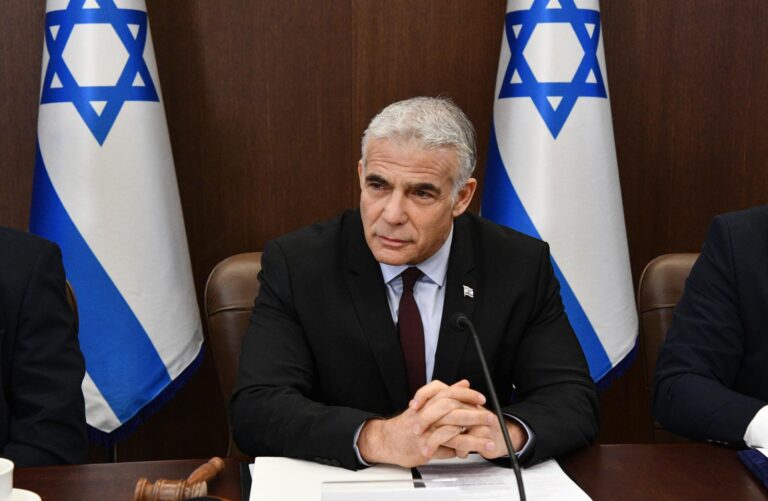
Does Lapid not understand the Jewish story?
"I was the chairwoman of the Symbols and Ceremonies Committee, and always when a leader comes to Israel, he goes to two places: to the Western Wall and to Yad Vashem. It's part of the protocol. When US President Joe Biden came to Israel, he visited Yad Vashem but did not go to the Kotel. It's good that he visited Yad Vashem, which is very important, but the Kotel is also our symbol. He did go to visit East Jerusalem.
"Lapid, when he was appointed Prime Minister, did not go to the Kotel, because he does not care about the Jewish story. When people ask him how he defines himself, he says 'Israeli' and not 'Jewish'. This is the loss of the power of this country."
You also define yourself as Israeli.
"But I am first and foremost Jewish."
And then Israeli?
"First of all a Jew and only then an Israeli. I am in the State of Israel because I am Jewish."
And if someone defines themselves first as an Israeli and only then as a Jew, what does that say about their values?
"I don't need to say what this means about their set of values. Studies have been done on this at Tel Aviv University and the University of Haifa, and what they say is that whoever defines themselves first of all as Israeli is usually secular, from the left, not connected to tradition, and usually Ashkenazi. Those who define themselves as Jewish are usually traditional, very attached to their Jewish identity, mostly Mizrachi, and vote for the right. It wasn't me who did the research."
“I made it clear that culture was not born in Tel Aviv"
Regev takes great pride in her role as Minister of Culture and Sport, which she held for five years, and says she left behind a legacy.
What have you done differently from what your successor, Culture and Sport Minister Hili Tropper, is doing?
"Hili is enjoying everything I did. I gave him scissors as a gift, for him to go and cut the ribbons of everything I did. Scissors and a CD of Andalusian music."
What did you do?
"I brought about a revolution. I increased the culture budget from 700 million shekels to more than 1 billion shekels. I brought culture to the periphery. I made it clear that culture was not born in Tel Aviv. They are not the landlords of culture. We established theatre, music and festivals in the periphery."
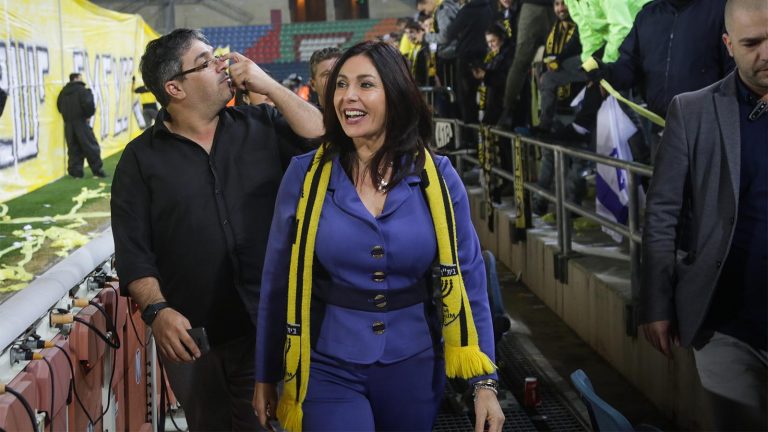
What worldview directed you?
"Culture is an identity, and everyone can enjoy it. Culture is not just being able to play a violin, it is also other things. There is no high culture and low culture. There is a stage on which each person plays their own unique instrument, and together they play a wonderful melody.
"Secondly, when I took office, I said I would close the Al-Midan Theater, the same theaters and the same organizations that use public money to praise and glorify terrorists. And I indeed closed Al-Midan.
"During the Ophir Prize ceremony, most of which is funded by the Ministry of Culture, Tamer Nafar stood and sang a song by [Palestinian national poet Mahmoud Darwish] that says we will eat your flesh, that of the Jews. And I say: with all due respect, a song that says that they will eat our flesh, Jewish flesh, is a song that is unacceptable to me."
Are all Darwish songs and poems wrong?
"The State of Israel is the nation-state of the Jewish people. We want to live in peace with the Arabs who live here. There was no government, and there was no minister in the State of Israel, who, like me, gave so much to the Arab sector – whether at the cultural level, or at the sports fields. When I came to Rahat, the mayor told me: 'I don't like Likud, but I like you.' I told him, 'Don't overdo it.' He said to me, "Because you gave to us."
"I allocated budgets, I fought the legal advisor so that culture in the Haredi sector and in the Arab sector could also be segregated. Separation is not exclusion. [Former Deputy Attorney General] Dina Zilber told me: 'No, you shouldn't do that, because you have to do everything together in the public sphere.' I said: 'Why is everything together in the public sphere? Let's respect their culture. If they want to separate men and women, they will do it, as long as the event will be for women as well as for men." I brought the biggest pool in the south to Rahat, because I thought it was right for everyone to enjoy.
"We also established Arab orchestras. I love Mizrachi culture. So at the time, alongside the Israeli Philharmonic Orchestra, I brought the National Andalusian Orchestra. I set up 24 ‘founders’ homes’ (cultural centers) that will tell the story of our parents, who built this country."
"I don't need Abbas to integrate Arab society – I did it"
Do you hate Arabs?
"God forbid. What do you mean do I hate Arabs? My parents came from Morocco and Spain. They lived with Muslims. I have a lot of Muslim friends, there are a lot of Muslim members in the Likud movement."
Are you in favor of integrating Arab society into Israel?
"Not only am I in favor, I think it's necessary and important. The more the Arab society here is integrated here, the stronger and healthier it will become. I think what they want is exactly what I want – for our children to learn, to have a good salary, and a good livelihood. I oppose those who are not loyal to the state and give a boost to terrorist organizations."
[The Islamist Party] Ra'am is not a terrorist organization.
"Ra'am and the Islamic Movement think that the State of Israel should be a state of all its citizens."
They are in favor of integration.
"No, no, no. Abbas is misleading. He smiles, but in the end he works for the Shura Council (a consulting body that elects Hamas' Politburo) and the Islamic Movement. He wants the state to be for all its citizens. And I say that if there is anything I will fight for, it is that the State of Israel will remain the state of the Jewish people and the Jewish nation. That's our strength.
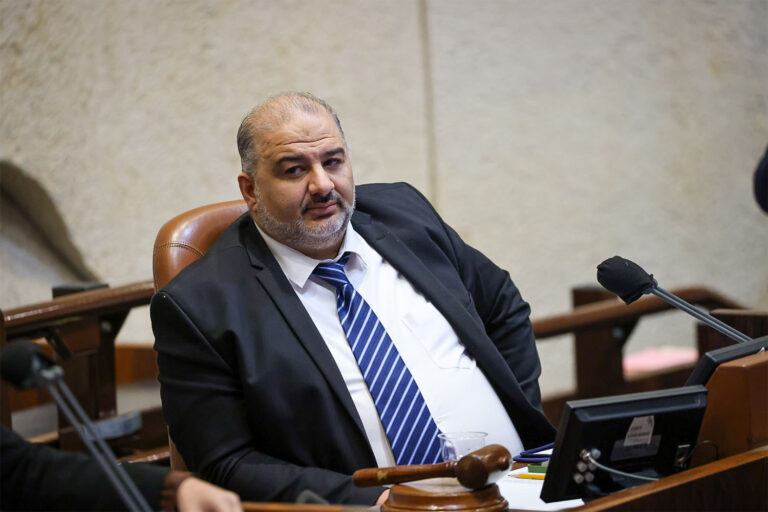
"There are many democratic countries. Our strength is our connection to Jewish identity, to the Jewish symbols, to the Menorah, to the Western Wall. If you go to Judea and Samaria, to the Cave of the Patriarchs, to the City of David, as much as you dig, you will not find a 3,000-year-old Palestinian coin, but you will find a 3,000-year-old Hebrew coin. As long as they respect the fact that the State of Israel is the nation-state of the Jewish people, I have no problem with them."
Don't you trust Abbas that he really wants integration? He took far-reaching steps.
"I don't trust him. Besides, I don't need him to integrate Arab society. I did it at the Ministry of Transportation and the Ministry of Culture. At the [Yom Ha’atzmaut] beacon-lighting ceremony, I let minorities light a torch as part of the success of Israeli society. I changed the whole perception of the ceremony. From an elitist place of familiar people, we brought the entire Israeli society to the forefront.
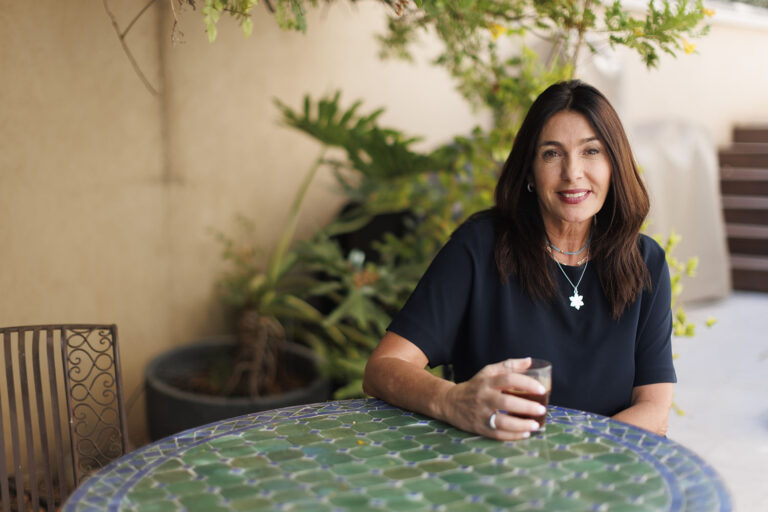
"When [Israeli television presenter] Kobi Meidan interviews [author and Yedioth Ahronoth columnist] Meir Shalev and asks him: 'Why are your books about people with the same DNA?' to which Shalev replies: 'Because the others weren't there,' I ask Meir Shalev: 'Didn't you see the chalutzim in Migdal Haemek who guarded Nahalal? Know that they were also here, and they built this country, and they just looked different. They had headscarves and payot, and they built this country.'
"The Israeli story should be a full story. You have to tell the story of the kibbutzim, but also the story of our parents, the moshavim in the north, the development towns, they were also here and they built this country."
Is your husband still voting for the center-left parties?
"No. My husband votes for Likud. My husband was a Mapainik at one point. His parents are Mapainiks who were raised on the lap of [former Labor MK and Minister] Yigal Alon. His father was one of the founders of Kibbutz HaZore’a. My husband worked for Likud, and votes for Likud."
And the kids?
“Them too.”
This article was translated from Hebrew by Benji Sharp.






